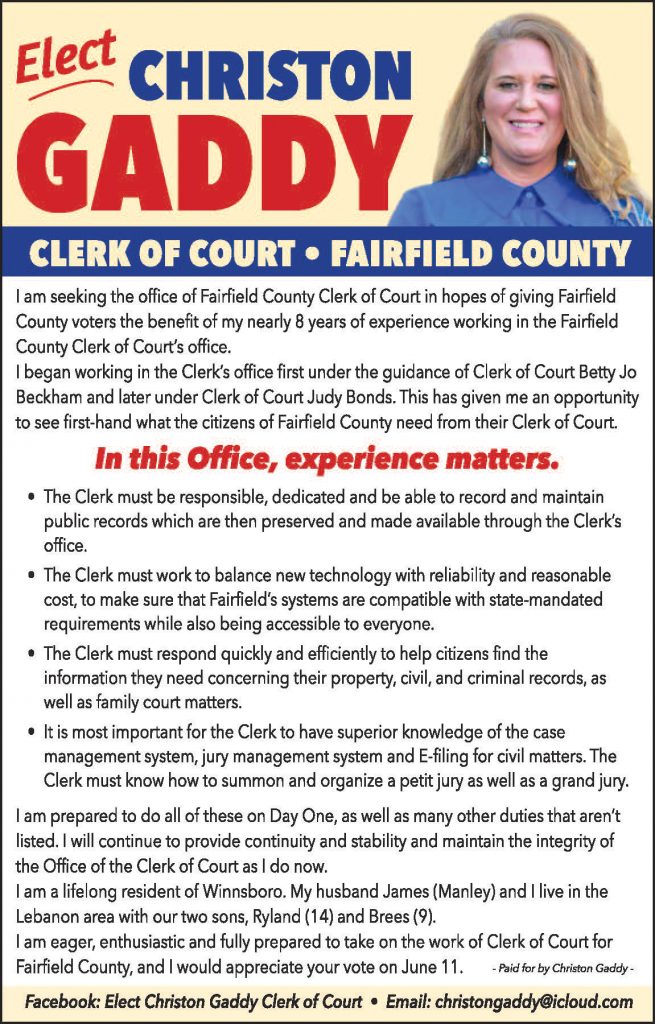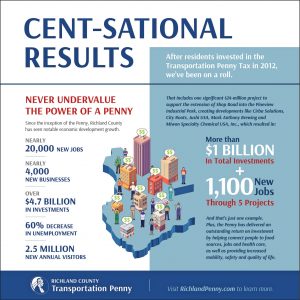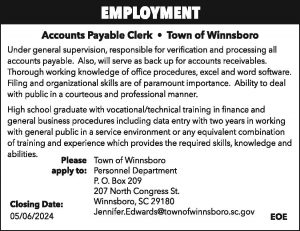If last week’s political forum between MaryGail Douglas (D) and William Gray (R) is any indication, the voters in District 41 will have a tough choice in November between two very good candidates for the State House of Representatives. The candidates proved that political discourse can be instructive without being destructive, and in all likelihood the voters walked out of the Christ Central Community Center with a better picture of who the candidates were at a fundamental level.
They agreed on much, particularly when it comes to the big issues facing the district – economic development, infrastructure, bipartisanship and the importance of education – but diverged on ethics reforms and cleansing the political system of corporate interests.
And without the latter, the former may only be so much effluvium, belched into the wind to be blown to the four corners of the Earth.
While Douglas advocated rewriting South Carolina’s ethics laws from scratch, Gray maintained that ethics cannot be legislated and that we, as voters, should demand better candidates instead of tougher laws. While Douglas was open to the idea of a public referendum to determine if elections should be purged of private interests and paid for by a public fund, Gray found the idea of regulating how much anyone could contribute to anyone they wanted unpalatable and unconstitutional.
Although we disagree with Gray on the first part, we agree on the second part. More importantly, so does the U.S. Supreme Court, which, in the Citizens United case ruled that, essentially, money was speech. It would, therefore, take a Constitutional amendment to liberate our political process from the shackles of corporate interests, and that is something that is not even part of the national conversation at this point.
But it should be.
If we accept the Court’s logic that money is speech, and in America we enjoy the right of free speech, we must also acknowledge that some people have more money than others. Therefore, some people are more free than others – and in America, that just doesn’t wash.
We appreciate Mr. Gray’s idealism when he says good candidates would not be beholden to those who control the purse strings of the election process, and as far as his candidacy goes we are confident that he is correct. But imagine a world where politicians spend less time kowtowing to corporate and union bankers and more time actually reading the legislation they pass, more time serving the people they represent.
It could happen, if we the people want it bad enough, and it would only cost taxpayers about $20 a year. It would also require some financial sacrifices from television and radio, but those are the public airwaves, after all. We own them, and we could demand that, during election years, a portion of them be donated for political time. It would also require some similar sacrifices from newspapers nationwide, but wouldn’t it be worth it to know your representative actually represented you?
This dream of a clean political system may be more idealistic, at the end of the day, than Mr. Gray’s view of good candidates, and it may take a lot of shouting down here at the state and local levels before it reaches the national stage. But if it is worth shouting about at all, the outcry has to begin somewhere.
Why not here?












